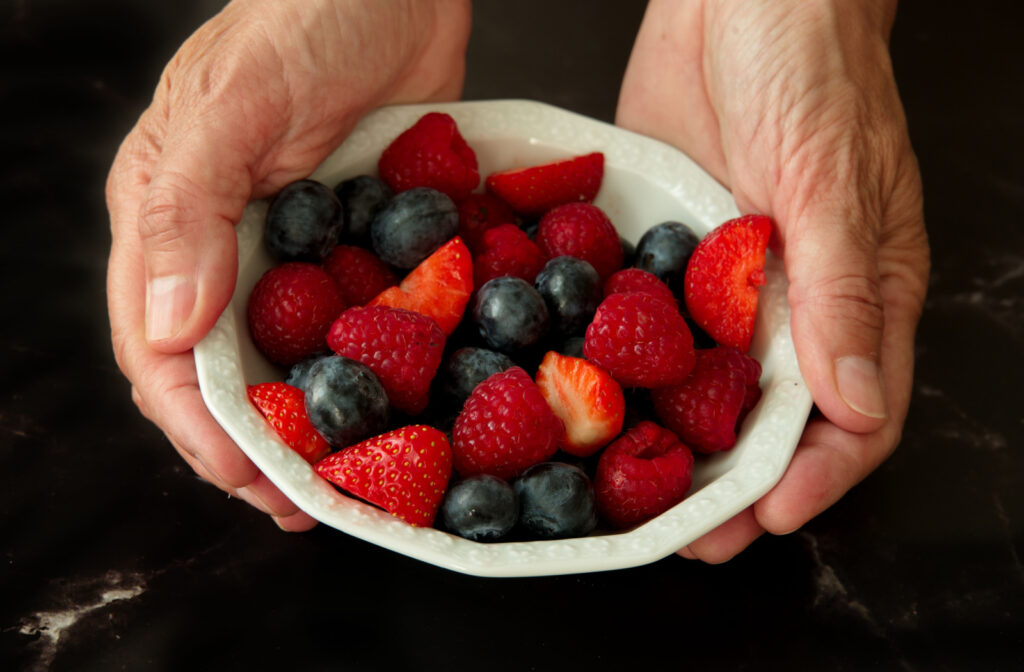As we get older, it’s natural to be worried about some form of cognitive decline. While there are currently no recognized cures for dementia or Alzheimer’s, there are some steps you can take to reduce the likelihood of experiencing memory impairment—such as engaging in fun activities for seniors to support your physical and mental well-being and avoiding certain foods in your diet.
5 of the worst foods for memory loss include:
- Sugary drinks and candies
- Refined carbohydrates
- Fried foods
- Artificial sweeteners
- Anything heavily processed
Reducing how much of these foods you consume can provide long-term support for your mental and physical health.
Whether you live in a senior living community, with your family, or on your own, your lifestyle can play an essential role in how likely you are to develop some form of memory loss, so consider making a small change today to support your mental health tomorrow!
How Is Diet Linked to Memory Loss?
There’s a close link between your diet and your overall cognitive function, and this extends to how likely you may be to experience memory loss. The foods we consume can either nourish our brains or hinder their function.
Nutrient-rich foods can provide your brain with essential vitamins and antioxidants that protect brain cells and promote your overall cognitive function. But many of us also enjoy foods that may not support our cognitive health.
A diet high in certain substances, such as artificial sugars or overly processed foods, can lead to inflammation in the brain, stress, and other factors that contribute to memory loss.
1. Sugary Drinks
Even though they’re extremely common and available almost everywhere, sugary drinks can be problematic foods brimming with refined sugars. Higher sugar levels can lead to insulin resistance, inflammation, and compromised cognitive function.
Beverages to avoid for those who may be at risk of developing memory loss include:
- Sodas
- Energy drinks
- Sports drinks
- Overly-sugary coffees
- Milkshakes
- Smoothies with too much sugar
Opting for water or unsweetened alternatives can be an excellent choice if you’re concerned about preserving your memory.
2. Refined Carbohydrates
Refined carbohydrates, most often found in white-colored pasta and breads, can wreak havoc on memory health. Certain carbohydrates can cause rapid spikes and crashes in blood sugar levels. Over time, changes in blood sugar caused by refined carbohydrates could affect cognitive function and contribute to memory issues.
Foods high in refined carbohydrates include:
- White bread
- White rice
- Sugary cereals
- Pastries and baked goods, such as muffins, doughnuts, and croissants
- Most forms of soft and hard candy
- Sodas and sugary drinks
Instead, try opting for foods rich in whole, unprocessed grains, such as oats, whole-grain bread, cracked wheat, or quinoa.
3. Fried Food
Fried foods, frequently laden with unhealthy trans fats, can have a detrimental impact on memory health. These foods are typically high in unhealthy trans fats and saturated fats, which can have a negative impact on the brain’s cognitive abilities over time.
While these won’t cause many immediate consequences in the short term, they can add up over time and cause inflammation, clogged arteries, and even reduced blood flow to the brain—all of which can damage brain cells in the long term and lead to memory loss.
Instead of fried foods, try opting for:
- Roasted foods, like baked potatoes or roast chicken. You can roast these for a crispy texture with very little oil, which can be beneficial for your body!
- Grilling your food to get a smoky flavor without the need for additional oil.
- Steaming your vegetables so they retain their natural flavor.
- Eating vegetables raw as side dishes—or even the main course!
If you’re still craving that fried-food taste, it can be helpful to think about investing in an air fryer. Air fryers can cook food as though it were fried and help limit the harmful inflammation-causing side effects of eating food fried in oil.
4. Artificial Sweeteners
Artificial sweeteners, commonly found in diet sodas and sugar-free products, have been associated with memory impairment. While they often offer fewer calories than other forms of sugar or sweetening, their potential impact on brain health could be a reason to avoid them.
Many light yogurts, sugar-free syrups and candies, and even low-calorie salad dressings use artificial sweeteners in place of sugar. When using a sugar-free alternative, manufacturers are usually required to list these ingredients on the product labels. It can be helpful to spend some time reading nutritional labels if you aren’t sure about whether or not a product contains artificial sweeteners.
5. Heavily Processed Foods
Heavily processed foods, often filled with unhealthy fats, sugars, and artificial additives, can be extremely problematic and may contribute to memory problems. These overly-processed foods can trigger inflammation throughout the body, including the brain, which has been linked to memory decline.
Processed foods are often full of unhealthy fats and often don’t have much nutritional value. They’ve even been linked to an impact on the microbes in your stomach, which can increase inflammation in the brain.
Overly processed foods include:
- Most forms of fast foods
- Frozen microwave meals
- Candies and sweets
- Processed lunch meat
- Sodas and sugary drinks
- Instant noodles
- Sugary breakfast cereals
- Chips and many kinds of snack foods
- Instant soups
- Processed cheese
Processed foods are linked to increased inflammation, which can negatively affect how likely you are to experience memory loss in the future. While you don’t need to entirely cut processed foods out of your diet, it can be extremely helpful to cut back on how much of them you consume.

The Importance of Diet for Healthy Senior Living
At The Legacy at South Plains, the well-being of our residents is always at the front of our minds. We offer nutritious meals that support memory health as an integral aspect of our care. A balanced diet rich in fruits, vegetables, lean proteins, and healthy fats can support cognitive function and contribute to the long-term quality of life for seniors with many different lifestyles.
If you or a loved one are in need of a senior living community that understands the importance of a healthy lifestyle, book a tour with us today!


